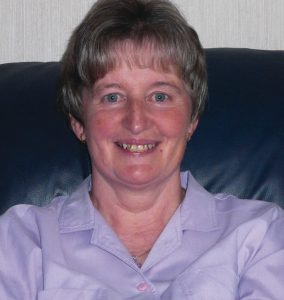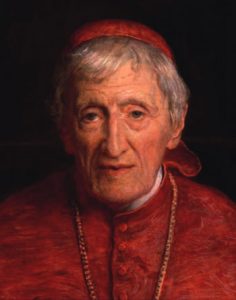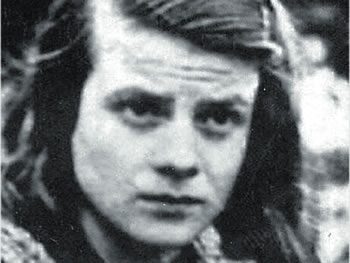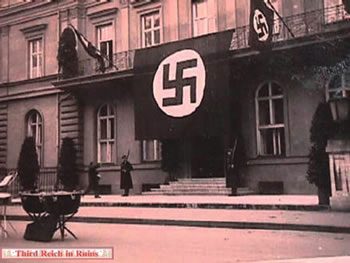White Rose
Germany, 1943. Four days after being arrested as enemies of the State, three young people were executed. Sophie Scholl, the youngest at 21 years old, her brother Hans, 24 and a friend Christophe Probst 23, were to be made an example for all other young people with ideas of rebellion.
Sophie and Hans were two of six children born to Robert and Magdalena Scholl. They were a close- knit family surrounded by books and music and a love of the outdoors. Robert had been a pacifist during the First World War and was staunchly opposed to the Nazi regime, so was deeply unhappy with his children’s involvement in the Hitler Youth Movement. Nevertheless, he did not stand in their way, patiently waiting for them to discover for themselves the evil behind Hitler’s Nazi Party. He told them he wanted them to “live in uprightness and freedom of spirit, no matter how difficult that might be.”
Robert Scholl was to pay for his outspokenness when he was arrested by the Gestapo for openly stating that Hitler was “a scourge on mankind.” Four months in prison and a ban on working in his profession as an accountant was the result. The following year he was again imprisoned where he remained until the end of the war.
To begin with the youngsters enjoyed the Movement, mainly for its outdoor aspect: camping, country hikes and rallies but things changed when Hans returned from the Nuremburg rally in 1935. For the first time he began to see through the rigid, senseless rules they were forced to endure. Individualism was not tolerated and censure followed those who didn’t toe the line. His doubts eventually reached his siblings, particularly the impressionable fourteen year old Sophie. The two siblings were close and circumstances over the next three years would be the foundation of the path they were to eventually take.
The Hitler Youth Group was the only organisation young people were allowed to join, so when Hans was arrested by the Gestapo for being part of a German Boys Club, the rest of the family were implicated by association. His parents’ house was searched and three other Scholls children were arrested and held in custody, including Sophie. All were released and life went on. For Hans though, things would never be the same. By this time he was in military service and more disillusioned than ever; his strong sense of justice left him feeling totally isolated in his views. He also had a growing awareness of God and it was only a matter of time before Sophie too was on her own spiritual journey.
University followed military service and for 20 year old Hans this also meant delving deeper into the Bible as well as St Augustine and St Thomas Aquinas. By 1940, he was working alongside doctors in military hospitals in Russia and France as part of his medical training and the carnage he witnessed just reinforced his extreme views concerning Hitler’s war. Towards the end of that year, when back in Munich studying with other medical students, he discovered some of them were like minded – including Christopher Probst who stood beside him later in the dock - and his anti-Nazi views found fertile ground.
For Hans things began moving quickly. A family friend began publishing literature without the approval of the Nazis and Hans and his sister Inge became involved. Had they been caught, the penalty would have been imprisonment. But it was Carl Muth who would have the biggest influence on the young man. This devout Catholic had produced a magazine that had been banned by the Nazis, as well as possessing numerous illegal books. Through him and his circle of friends, Hans and his sisters, especially Sophie were to become more spiritual and therefore more against the regime. The seeds were being sown for the White Rose.
Sophie Scholl meantime was going through her own crisis. Like her father she was used to speaking her mind and with each passing day she became more and more outspoken as she faced fresh injustices in her homeland. John Henry Newman’s “Theology of Conscience” had a huge influence on her as she constantly struggled to follow her own conscience and do what was right. Ultimately she wanted to attend Munich University, which being female was not easy to do as the Nazis made it clear that women were to focus on furthering the Aryan race not education.
For Sophie there was no either/or - she was determined to go to university. Firstly though she had to devise a way to avoid the six month National Labour service, which she hoped would happen by taking a kindergarten teaching course. During the next few months she looked after children in day nurseries and residential care, occasionally living away from home. In the last six months of the course she became more interested in the Bible and was more convinced than ever of the validity of the Christian values it contained.
Unfortunately for Sophie, graduation in March 1941 did not lead to university as she had hoped. To her disappointment she still had to do the six month’s Labour Service, which began in April many kilometres away from home. Living with around 800 other women, none of whom shared her views, made this a very lonely period in her life. To begin with she couldn’t even lose herself in her precious books as they were banned, but somehow she obtained a copy of St Augustine’s ‘Confessions’ and devoured his words, relating to much of his writings.
It was May 1942 before Sophie was able to join Hans at Munich University. She soon became part of the political discussions her brother and his friends were involved in, so it was inevitable that she would also become part of the White Rose, run by Hans. The organisation was as much about Christian values as anti-Nazism. Spurred on by the knowledge of what was happening to the Jews, the group took the peaceful approach of resistance advocated by the Catholic archbishop Clemens von Galen, known as the Lion of Munster.
The production and distribution of anti Nazi leaflets was their show of opposition: by the end of the year Sophie was heavily into both aspects of this work as well as travelling far and wide to post them. This, together with her maintaining her studies, began to take it’s toll on the young woman as she was complaining of “some pretty bad headaches” in a letter to a friend early in the new year.
There was to be no respite. At the beginning of February slogans such as “Down with Hitler” and “Freedom” began appearing on buildings around Munich and on the 16th of that month, the sixth and final leaflet was published. Unlike the first four, which were lengthy and spoke much of Christian ideals, the last two were openly appealing to people to resist the regime. By this time also, the movement was growing, distribution was widening so inevitably it wasn’t long before copies came to the attention of the Gestapo.
However, before the search for the authors of the leaflets had barely begun, things came to a head. On the 18th of February, Hans and Sophie arrived at the university with a suitcase full of leaflets leaving bundles scattered throughout the building. When the students came pouring out of the lecture halls, they were greeted by leaflets tumbling down from the floor above which Sophie had strewn. Unfortunately for her and her brother, they’d been seen by a porter, a Nazi sympathiser who arrested them and called the Gestapo. The siblings offered no resistance. Hans attempted to destroy a handwritten note given to him by his friend Christophe Probst but was unsuccessful and Christophe too was later arrested.
At the Gestapo headquarters in Munich Sophie and Hans were interrogated separately. At first they denied all knowledge of the leaflets until evidence found proved otherwise, at which time they stated that each alone was responsible, trying desperately to shield the other. Sophie’s interrogator, Robert Mohr, admired her strength of character and her deep faith. Using none of the usual Gestapo tactics, he treated her fairly and hoped she would see reason enabling him to release her with just a reprimand.
However, it was not to be. A full confession from Hans, in the hope he would shoulder the total blame, plus overwhelming evidence found at their accommodation, saw Sophie admitting everything and as resolute as ever in her actions. Mohr later said he was deeply impressed by the devotion shown between the siblings. His attempts though to save her life were futile as she was unrepentant, stating, “I do not regret my conduct. I wish to fully accept the consequences of my actions.”
Sentencing was swift. Two days later on the 22nd of February, Sophie, Hans and Christoph were transported to Stadelheim Prison in Munich. There Christophe converted to Catholicism and the prison chaplain gave all three the last Sacraments. They were executed later that afternoon.
More than 70 years later, their legacy lives on. The White Rose Museum in Munich’s university is a reminder of their ideals and courage and almost 200 schools in Germany bear Sophie Scholl’s name. In a poll Hans and Sophie were listed among the “Greatest Germans” while Sophie was one of the top women.
Sophie Scholl once said, “I realise that when I love people very much, I can’t do better than include them in my prayers. If I love people in all sincerity, I love them for God’s sake. What better thing can I do than take that love to God?” She took an abundance of that love when she gave up her life for her faith and her ideals.




 Entries(RSS)
Entries(RSS)